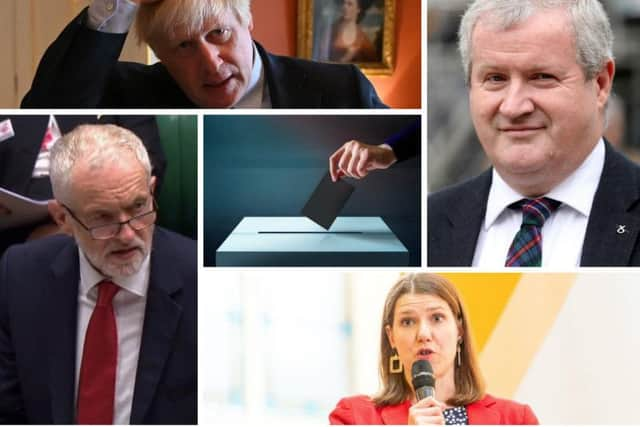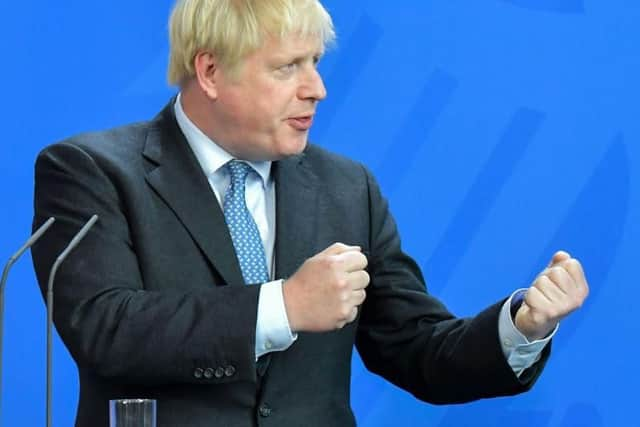Analysis: Could the SNP be the key to Labour taking power at Westminster?
So what happens next? If a vote of no confidence is passed - and it is far from guaranteed that such a move would attract enough support - Boris Johnson could be out of Downing Street if attempts to form a new government are successful.
This new administration would be short-lived. Its sole purpose would be to formally request another extension to Article 50, thus avoiding a no deal on October 31. Once an extension was secured, parliament would vote to dissolve and a general election called.
Advertisement
Hide AdAdvertisement
Hide AdAs the leader of the official opposition, Jeremy Corbyn would ordinarily be the natural choice to lead any caretaker administration. But not everyone in the Commons sees it that way.


A senior SNP source told The Scotsman that finding a neutral, “non-threatening” figure who could appeal to all opposition parties and Tory rebels would be a focus of talks.
Anyone but Corbyn
While the SNP, the Lib Dems and the majority of Labour MPs are united in their opposition to a no deal Brexit, there are very real differences over who should lead a temporary government.
With this in mind, the Nationalists have reportedly already held private talks to try and identify an alternative candidate to Corbyn. “The SNP has no preference as to who takes charge of a caretaker government,” Ian Blackford told the Sunday Times yesterday.


“We would, however, only support a person or party for as short a time is required to secure the extension and call the election.”
Lib Dem support
The SNP are, of course, not the only anti-Brexit force in Westminster. Since taking charge this summer, Lib Dem leader Jo Swinson has positioned her party firmly against the UK leaving the EU.
The Liberals are gaining in the polls and harbour ambitions they could, after the next election, end up with more MPs than Labour to become the largest party in a loose pro-Remain coalition.
But in the short term, Swinson is adamant the Lib Dems will not back any plan which would put Corbyn in power. The question is whether they would back a compromise candidate - perhaps a Tory grandee like Ken Clarke or a more centrist Labour figure like Margaret Beckett.
Advertisement
Hide AdAdvertisement
Hide AdThe SNP think that if the Liberals fudge the issue, it will play badly with Remain voters - and cement the Nationalists’ position in Scotland as the leading anti-Brexit party when voters go back to the polls.
Election fever
It is now accepted by all parties that a general election will be called, regardless of whether a confidence motion is successful.
While party leaders say they are focused on Brexit, they are also positioning themselves for the gruelling election campaign that will inevitably follow.
Both the SNP and Lib Dems believe they stand to make gains at Labour and the Conservatives’ expense north of the Border. Being able to claim credit for avoiding a no deal would play well in certain constituencies.
If - and it remains a very big if, given recent polling - Labour was to emerge as the largest party after such a vote, it would most likely form a minority government, reliant on support from the SNP and others to pass legislation.
Such a result would throw up a whole set of new questions on what price the Nationalists would demand from Labour in return.
The Conservatives, meanwhile, are confident that public anger over the delay to Brexit will sweep the party to power. They also believe that the political horsetrading involved in installing a temporary government would not prove popular.
